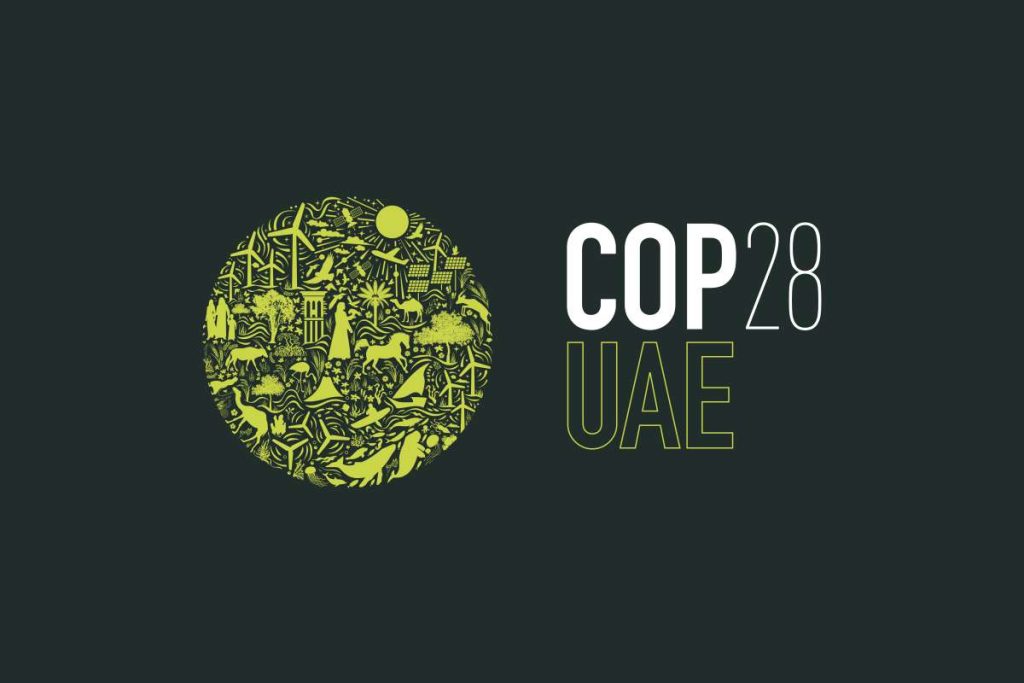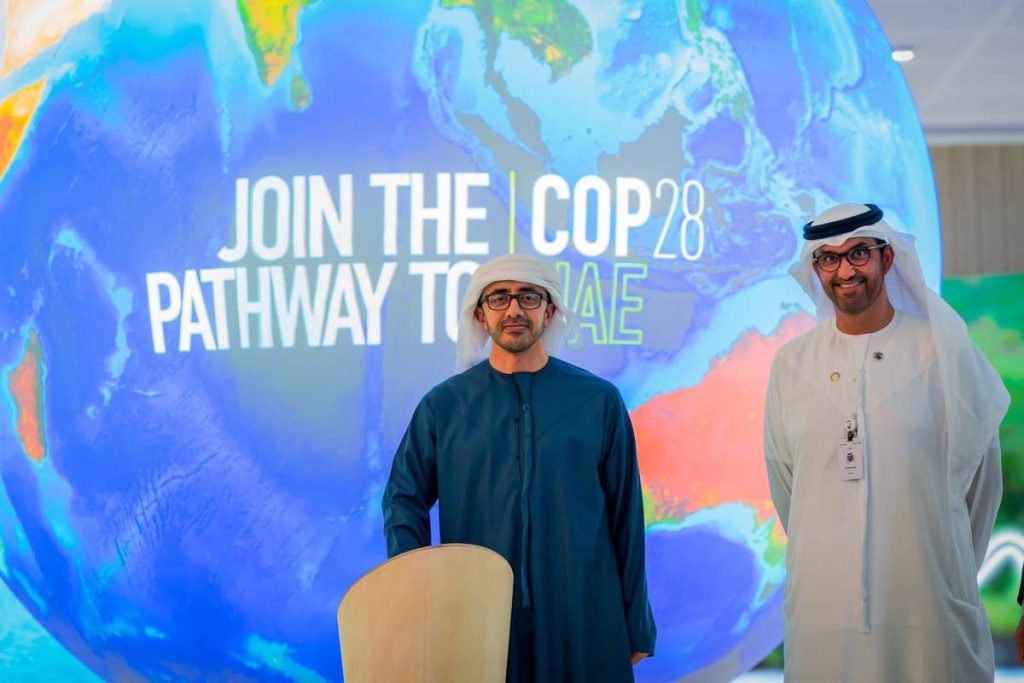
The GCC countries supported the team’s call for joint action for the success of COP28, inviting all countries and international organisations to actively participate in the conference…reports Asian Lite News
Gulf Cooperation Council (GCC) nations re-affirmed their full support for the UAE’s hosting of COP28 this year and empathised the importance of the climate conference in tackling climate change, following an extraordinary ministerial meeting attended virtually recently.
The meeting, called at the request of the UAE, was chaired by Salim bin Nasser Al Aufi, Minister of Energy and Minerals and Chairman of the National Committee for Climate Change in Oman, and with the participation of Dr. Sultan bin Ahmed Al Jaber, UAE Minister of Industry and Advanced Technology and COP28 President-Designate.
Also present at the meeting were Suhail bin Mohammed Al Mazrouei, representing the UAE, Minister of Energy and Infrastructure, Shamma Al Mazrui, UAE Minster of Community Development and the first-ever COP28 Youth Climate Champion, Dr. Mohamed bin Mubarak Bin Daina, Minister of Oil and Environment, Special Envoy for Climate Affairs, Kingdom of Bahrain, H.R.H. Prince Abdulaziz bin Salman Al Saud, Minister of Energy for Saudi Arabia, Ahmed Mohammed Al Sada, Assistant Undersecretary in the Ministry of Environment and Climate Change for Qatar, Samirah Mohammad Abdullah Al Kandari, Acting Director General of Environmental Public Authority, Kuwait, and Jasem Mohamed AlBudaiwi, Secretary General of the GCC.
They hailed the appointment of the leadership team for COP28, with Dr. Al Jaber being COP28 President-Designate, Shamma Al Mazrui, the COP28 Youth Climate Champion, and Razan Al Mubarak, the UN Climate Change High-Level Champion.
The GCC countries thanked the UAE for requesting this meeting and emphasised that they support the efforts of the COP28 UAE Presidency team, as their appointment confirms the UAE’s commitment to transformative development and moving global climate action from negotiations to finding and implementing logical and practical solutions, benefiting from this leadership team’s expertise in sustainable development and climate action.

The GCC countries supported the team’s call for coordination, cooperation and joint action for the success of COP28, inviting all countries and relevant international organizations to actively participate in the conference.
The GCC countries also acknowledged the outcomes of COP27 and congratulated the Arab Republic of Egypt on its successful organisation of the conference.
As developing countries with unique regional conditions economically, socially and environmentally, the Member States affirmed the importance of observing the provisions and underlying principles of the United Nations Framework Convention on Climate Change and the Paris Agreement, especially the principles of equity and common but differentiated responsibilities. The nations stressed that implementation of the agreements should take into account the negative social and economic impacts resulting from response measures to climate change, especially those impacting developing countries, which are most vulnerable to such effects.
The GCC nations stressed that COP28 will need to achieve ambitious and balanced negotiated results that focus on implementing the Nationally Determined Contributions (NDCs) and look forward to conducting the first Global Stocktake at COP28.
During the meeting, the efforts of the GCC countries in combating climate change were highlighted, including measures, plans, and programs to ensure environmental, economic, and social sustainability in the region through the circular carbon economy approach, which is a closed loop system involving 4Rs: reduce, reuse, recycle, and remove.
The GCC countries emphasised the need for COP28 UAE to achieve tangible progress on the Global Goal on Adaptation in the context of the Paris Agreement temperature goal, and the Mitigation Work Programme (MWP), provided that it includes all means to address greenhouse gas emissions, regardless of their sources or sectors, by using all technologies and sectors, including renewable energy sources and clean hydrocarbons, as well as activating means to support implementation in accordance with the principles and provisions of the Paris Agreement.

This includes operationalising the Loss and Damage fund and its funding arrangements, the fulfillment of the pledge to provide $100 billion annually by developed countries to support developing countries, starting from 2020, and advancing towards establishing the new collective quantified goal on climate finance.
The GCC countries affirm that achieving a logical, practical, gradual, and just transition in the energy sector is based on three pillars of equal importance: ensuring energy security, economic prosperity for all countries, and reducing greenhouse gas emissions.
The countries support universal access to affordable, reliable, up-to-date, and sustainable energy within a path to achieve sustainable development on a larger scale, through investment in all relevant technologies, including renewable energy, energy efficiency, the use of hydrogen as a fuel, carbon capture, storage and reuse, direct air carbon capture, and nature-based decarbonisation solutions.
They also support other key areas to enhance adaptability to the effects of climate change, such as combating desertification, reducing sand and dust storms, enhancing food security, afforestation, improving land use and water management, and protecting biodiversity, ecosystems, and health.
The GCC nations also welcome the Saudi Green Initiative and the Green Middle East Initiative and consider them effective models for confronting climate change. The GCC nations agreed to hold the next committee meeting to follow up on developments and preparations for COP28 on October 8, 2023, on the sidelines of the MENA Climate Week to be held in Riyadh from 9 to 12 October.
ALSO READ: US debt deal energises GCC bourses


